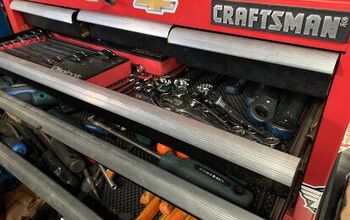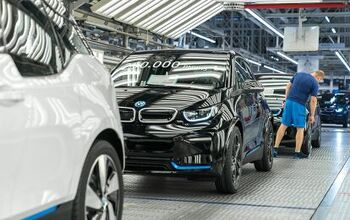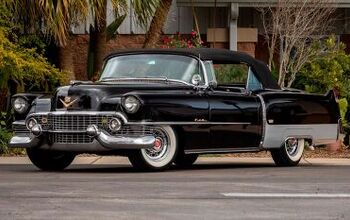No Fixed Abode: Oh, That the Roman People Had but a Single Neck - or a Single Transportation Choice!

“In this country, you gotta make the money first. Then when you get the money, you get the power. Then when you get the power, then you get the women.” Thus spake Tony Montana, anticipating the recent avalanche of sexual harassment claims by a few decades. What ol’ Scarface didn’t bother to tell us is that, for some people, the power is enough. For that lesson, we have O’Brien in Orwell’s 1984, who tells us that the Party seeks power for its own sake. “The object of power is power,” he says.
Those words floated to the front of my mind when I read about Chicago’s . The city was already charging 52 cents in tax per ride — plus five bucks per airport pickup — but now it will be charging 67 cents per ride. Starting in 2019, that total will increase to 72 cents.
What could the city do with that extra 15 cents? It’s already scheduled to receive more than 70 million dollars in ride-sharing taxes. What could the justification possibly be for upping the ante? And which of the Chicago machine’s many, many incompetently-operated programs could possibly have the moral right to receive this unexpected bounty?
If you know Chicago, you know the answer. But even if you don’t know Chicago, chances are that you can make an educated guess.
The $15 million or so raised by taxes on rideshares will, apparently, be going to fund public transit, with the bulk of it earmarked for infrastructure improvements on the rails. The Chicago Transit Authority — and I’m not speaking about the outstanding first album by Terry Kath’s band, but rather the ponderous bureaucracy that oversees rail and bus transit — believes it has lost 5 percent of its riders due to ridesharing.
Just for a moment, imagine the idea of General Motors complaining to President Trump that the redesigned F-150 was costing them 5 percent of Silverado sales and that they therefore should be the beneficiaries of a “Silverado tax.” Isn’t that outrageous? Well, it did kinda-sorta happen in 2008, only the other way around. But I digress. Most sane people agree that the government should not be picking winners and losers, regardless of whether the “winner” in question is Vice President Cheney’s Halliburton or President Obama’s Solyndra.
It’s easy to argue that the ride-sharing companies are predatory parasites that suck their drivers dry even as they nimbly transfer most of the liability onto the shoulders of people who are often too poor, or too ignorant, to even get the correct insurance for what they are doing. I tend to think of Uber as a choice for people who, like lottery-ticket purchasers, are bad at math. The fact remains, however, that these companies saw an opportunity, developed an infrastructure, and created a market, all without help from the Rahm Emanuels of the world. Uber might be a jerkoff stock scam run by sociopaths (or it might not be!) but the community of Uber drivers that has arisen in each major city represents a real grass-roots effort at solving transportation problems that are both valid and difficult.
In fact, I can’t help but think that some sort of distributed open-source system will eventually replace Uber and Lyft the way Craigslist replaced most of the Jurassic classifieds sites out there. You’ll pay five bucks for an app that connects you with available drivers, then you’ll cash them out via Paypal. It’s no trick to do it. Both the driver pool and the customer base has already been established. The only thing you’ll lose is the extremely thin veneer of perceived safety that you get with Uber. If you’re a grown man, or if you’re in a concealed carry state, chances are you won’t miss said veneer.
There’s something awfully gratifying about the way the ridesharing companies have outmaneuvered the saurian public-transport mandarins. Uber was founded just eight years ago. That’s less time than it took Toronto to construct a single three-mile subway extension. The rail-and-bus folks think in terms of decades, moving at a snail’s pace across an obstacle course festooned with the multitudinous follies of modern government and endless red tape, putting in 35-hour weeks liberally sprinkled with coffee breaks and sleepy meetings. They could no more compete with Uber than I could win the Olympic 100-meter dash. They are content to suckle slowly but strongly at the public teat until every last drop is gone.
It’s not just Chicago. It’s Los Angeles, which deliberately builds mass transit in places it’s not wanted as a showcase of progressive thought, then turns its back on the ragtag army of UberPool drivers who pick up the slack. It’s New York, protecting the value of taxi medallions at all costs because that’s the way it’s always been done. It’s the way the ride-share drivers are harassed at Heathrow, tagged and ticketed by an army of brand-new traffic cops.
As Marley said, though, none of them can stop the time. It is very, very hard to tax a genuinely better mousetrap out of existence. The fact of the matter is that public transit, as envisioned by enlightened urban planners and power-drunk urban officials, is the worst of all possible solutions. I hear that it worked great in my grandfather’s day, with hundreds of thousands of Brooks-Brothers-clad men in their ties going to work on Wall Street. And it worked great after Giuliani got into office and deaded shit. But it’s not compatible with modern ideas about who gets to live in an American city and what rules the police have to play by in dealing with those people. We live in an era where the BART is stormed without warning by looters, where violence on the NYC subway is spiking and 10 percent of riders say they’ve been assaulted in some way. Let’s not even talk about Chicago. There’s a reason people would rather take a chance on riding UberPool in some undocumented immigrant’s ’99 Odyssey, and that reason is the CTA.
You’re going to hear more imperial outrage from our moral superiors in urban governance. They will continue to complain that the proles don’t take the trains like they’ve been told to. They will continue to complain that UberPool traffic is clogging the streets that should be reserved for private car services and S-Classes steered in from the suburbs. They will put a finger on the scale and, when that doesn’t do it, they’ll put a fist there. It’s not about making sure that people have transportation options. It’s not about making the streets safer. It’s about the naked exercise of power, of being able to force millions of people to do their bidding.
When those people refuse to play along, you are going to see some real temper tantrums. When the Colosseum jeered his favorite fighter, Caligula was heard to say, “Oh, that the Roman people had but a single neck!”
In the end, however, it was his throat that got cut. It’s a lesson that our modern would-be Caesars would do well to remember.
[Image: joisey showaa/ Flickr ( CC BY-SA 2.0)]

More by Jack Baruth
Latest Car Reviews
Read moreLatest Product Reviews
Read moreRecent Comments
- Jeff Self driving cars are not ready for prime time.
- Lichtronamo Watch as the non-us based automakers shift more production to Mexico in the future.
- 28-Cars-Later " Electrek recently dug around in Tesla’s online parts catalog and found that the windshield costs a whopping $1,900 to replace.To be fair, that’s around what a Mercedes S-Class or Rivian windshield costs, but the Tesla’s glass is unique because of its shape. It’s also worth noting that most insurance plans have glass replacement options that can make the repair a low- or zero-cost issue. "Now I understand why my insurance is so high despite no claims for years and about 7,500 annual miles between three cars.
- AMcA My theory is that that when the Big 3 gave away the store to the UAW in the last contract, there was a side deal in which the UAW promised to go after the non-organized transplant plants. Even the UAW understands that if the wage differential gets too high it's gonna kill the golden goose.
- MKizzy Why else does range matter? Because in the EV advocate's dream scenario of a post-ICE future, the average multi-car household will find itself with more EVs in their garages and driveways than places to plug them in or the capacity to charge then all at once without significant electrical upgrades. Unless each vehicle has enough range to allow for multiple days without plugging in, fighting over charging access in multi-EV households will be right up there with finances for causes of domestic strife.


































Comments
Join the conversation
"Your talents may not be fully appreciated here," Good call. Jack's article was not an attack on mass transit. Some need to reread.
One of the things that JB doesn't know about Chicago is that it's the rail freight hub of North America. It's also one of the major bottlenecks in the North American rail freight network. And, yes, fixing the bottlenecks is going to cost billions of dollars, some of which will have to come from the government. As someone who rides Amtrak to Chicago fairly regularly (it's better than driving if you're going to The Loop), the inefficiencies of the rail layout in downtown Chicago add at least 20 minutes to the trip every time, due to way they have to turn the train around. Amtrak trains have the highest priority of any train, but other rail traffic can still cause significant delays. Fraught trains sometimes wait on sidings for days to get through. This is a real problem which needs to be fixed.